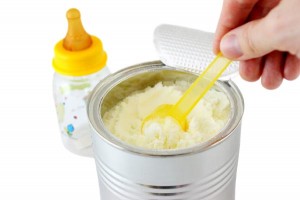Many people don’t know that expiry date and best before date are not the same. In fact, many people use them interchangeably thinking that they mean the same thing. Well, let me use this medium to inform you that expiry date and best before date are two different terminologies meaning different things and serving different purposes.
In this article, I will explain what each date marking found on food packages means and also introduce to you, the concepts of “use by” date and “durable life date”. I will however lay more emphasis on the expiry date and best before dates because they are the most commonly used on food packages.
Definition of Terms (Date Markings on Food Packs)
Expiry Date: It is added to a food package to tell consumers the last day a product is safe to consume. You should never consume food after the expiry date.
Best Before Date: This is the date the manufacturer deems the product reaches peak freshness. The date does not indicate spoilage, nor does it necessarily tells you that the food is no longer safe for consumption.
Sell by: This is specifically added for sellers of the products. Most sell-by dates are found on perishables like meat, seafood and milk. The date is a guide for stores to know how long they can display a particular product. After this date, they MUST not sell it.
So, what are the important differences between EXPIRY DATE and BEST BEFORE DATE? Each difference is explained in four pages – navigate through the pages by clicking on pages 2 to 5 below. By the time you are done reading this, you would find out that it is not every food that expires and not every food you should throw away after some dates.
1. The Meaning of Expiry Date & Best Before Date
Expiry date means that your food has gone spoilt from that date and you should never consume it. It is no longer safe to eat such foods as they would lead to illness and in extreme cases, death. Best Before Date on the other hand tells you that the food is no longer in its perfect shape from that date. It may just lose its freshness, taste aroma or nutrients. It does not necessarily mean that the food is no longer safe to eat.
Expiry date is not something we see on every food product. Unlike Best Before Dates, there are five types of products that are labelled with an expiration date:
- Baby formula and other human milk substitutes.
- Nutritional supplements.
- Meal replacements.
- Pharmacist-sold foods for very low-energy diets.
- Formulated liquid diets.
However, it is easy to find best before dates on nearly every item in the supermarket.
2. Best Before relates to Quality, Expiry Date to Safety
Best before dates indicates that the quality of a food material can no longer be guaranteed after that date, so this is a Quality indicator. On the other hand, Expiry Date indicates that a food has gone bad and should not be eaten. You put yourself in danger if you eat the food after its expiry date.
In a country like the U.S.A., foods that are perishable (e.g. cheese) are required by law to have an expiry date but something like a sleeve of crackers or a box of cereal doesn’t need to be dated. The best before date added to the packages of these food material are mostly voluntary.
3. It’s Possible To Eat Food After Best Before Date Without Falling Ill
Like I said earlier at some point in this article, best before dates do not relate to the safety of a food product, it is just about quality. This means that we can still eat a food that has passed its best before date; the food would just likely not be in its best quality state. It might have lost some nutrients or changed colour.
Manufacturers usually choose best before dates through sensory testing over a period of time. Testing may be scheduled for 1 month, 3 months, 6 months and 9 months after the product was manufactured. This depends on the food that is being tested.
The truth is that manufacturers choose mostly 20% earlier date than the best before date. If the food’s quality can no longer be guaranteed after 100days of storage, manufacturers would normally put the best before date at day 80 after manufacture.
Now that you know these things, I would like to ask you a question…
Your feedback is highly appreciated!!!




Great information..i always threw away my food at its best before date..thanx for the post..!!
nice article. was really helpful. thanks
Waoowwww!!! Thanks for this eye-opening article. More grace. God bless you.
Great Information! I Just Got Happy By Reading This.I Invite All To Read This!
Wow!…a reader is a leader, gonna maximize this knowledge very well. thanx 4 this open eye info.
Well in as much as I appreciate your article, I don’t think it is advisible for anyone to take or consume any product after best before date because any product whose quality,taste,aroma etc are lost, the safety of such product can not guarantee. You cannot emphasies on what the after-effect will be after consuming such product.
This is great knowledge , but some products don’t have expiry date, only best before date is indicated
This is very detailed, instructive and concise. I have always wondered at the difference but never took time to check it out.
The information was and is still immensely helpful. Thanks again.
I found dis article so helpful. Thanks.
I never knew the difference between an expiry date & best before, I used to throw away my stuff. Now I know the difference, thanks
Fantastic piece of information. A real eye opener. Love your posts. Keep up the good work
Excellent explanation! You guys make me know a lot of things, keep it up!